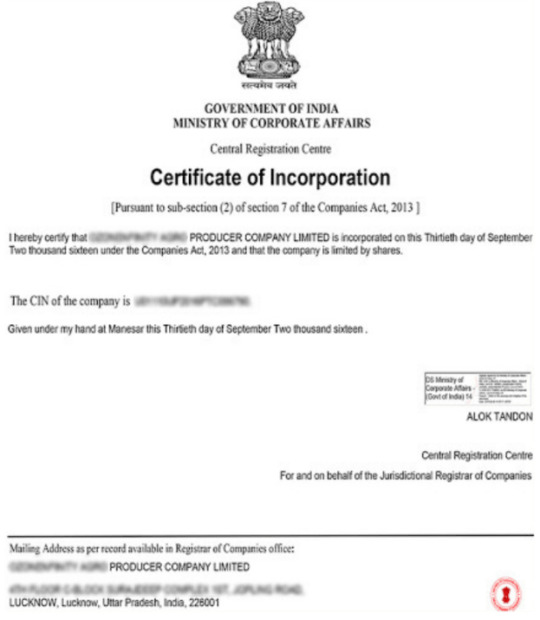#Public limited Company registration
Explore tagged Tumblr posts
Text
Public Limited Company Registration in Gurgaon
Enjoy a quick & seamless online Public Limited Company Registration process in Gurgaon. Kickstart your Company in Gurgaon with the expert assistance of RegisterKaro.
Step 1: Connect with our experts.
Step 2: Our experts will guide and prepare all the documents for Incorporation.
Step 3: Get your Company Incorporation Certificate in Gurgaon.
An Overview of Public Limited Company Registration in Gurgaon
In India, Gurgaon is one of the fastest growing cities and it’s an IT hub and it provides advantages to various companies. One of the main benefits of a Company registered in Gurgaon is the availability of a highly-skilled workforce composed mostly of technologically inclined professionals. Cutting edge infrastructure & favorable business laws in Gurgaon form a sustainable economic framework for start-ups. Further, its home to world-class tech companies luring fresh talent across the nation & a well-known startup epicenter. There is a huge scope for new Company Registration in Gurgaon.
At RegisterKaro, our experts help many clients every day for Company Registration in Gurgaon. Our experts will help you in the process of Company Registration in Gurgaon in a very small time frame subject to complete and proper documentation required for Online Company Registration in Gurgaon.
What are the Benefits of Public Limited Company Registration in Gurgaon?
With a strong infrastructure, flourishing IT Sector & a pro-business administration, Gurgaon provides a conducive environment for companies to grow & thrive. Gurgaon offers many benefits that can help your companies to succeed, including:
1. Secured assets;
2. Strong infrastructure;
3. Access to a large customer base;
4. Limited Liability Protection;
5. Easy access to Government Services;
6. Steadier contribution of capital & stability;
7. Business-friendly environment;
8. Exponential growth & expansion opportunities;
9. Access to capital.
Eligibility Criteria for Public Limited Company Registration in Gurgaon
Following is the eligibility criteria for Public Limited Company Registration in Gurgaon:
1. A minimum of 2 Shareholders & 2 Directors are required for Public Limited Company Registration and both the Directors & Shareholders can be the same people;
2. All businesses must have a registered office address from where they will conduct their business;
3. DSC (Digital Signature Certificate) and DIN (Director Identification Number) for all the Directors are also required;
4. The owners of the business will have to draft the required legal documents such as MoA, AoA & Shareholders Agreement;
5. At least one of the Directors must be an Indian Resident i.e., he or she must have stayed in India for at least 182 days in the last year.
For More info Click here :
#public limited company registration#Register Karo#company registration#Public Limited Company registration in Gurugram
2 notes
·
View notes
Text
What is the mini or max no of shareholders criteria for Public Limited Company Registration in India
To register a public limited company in India, a minimum of seven persons are required. There is no maximum limit to the number of persons who can form such a company. This requirement ensures that the company has a sufficiently diverse board and shareholder base to operate effectively and comply with legal regulations. If you want to know more about public limited company registration in India, then visit our website Legal Terminus today.
#bhubaneswar#india#company registration#companyregistrationinbhubaneswar#company registration in india#company incorporation#public limited company registration
0 notes
Text
Public Limited Company Registration: What to Consider
Check key factors to consider for Public Limited Company registration. Understand the requirements, benefits, and steps involved. Make Sure for compliance, attract investors, and set your business up for success with our right guidance for registering as a public limited company.
#Public Limited Company Certification#Public Limited Company Registration#Public Limited Company Certification Consultants#Public Limited Company Certification Consultants In India#Public Company Registration
0 notes
Text
In Depth Guide on Public Limited Company
What is Public Limited Company
A Public Limited Company, also known as a PLC, is like a big family of investors and entrepreneurs coming together to achieve their financial goals. It's a special type of business that offers its shares to the public on stock exchanges, inviting anyone interested to become a part-owner by buying shares.
Imagine it as a bustling marketplace where shares of the company are up for grabs, and anyone with a little extra cash can join the club. But don't worry, joining this club comes with a safety net – the "Limited" part means that your financial responsibility is only as much as the money you put in. So, if things don't go as planned, your personal assets are safe and sound.
In simpler terms, a Public Limited Company is like a well-organised team where everyone chips in some money to make things happen, and in return, they get a slice of the company's success.

Importance of Establishing a Public Limited Company
1. Broadening Investment Horizons
Public Limited Companies (PLCs) have a unique advantage – the ability to attract capital from a diverse pool of investors. By offering shares to the public on recognized stock exchanges, PLCs can tap into a vast market of potential investors, allowing them to raise substantial capital compared to private entities.
2. Spreading Risk, Sharing Rewards
One of the key benefits of going public is the opportunity to diversify ownership and spread risk among a large base of shareholders. This not only reduces the financial burden on individual investors but also allows early backers of the company to cash in on their investments while still retaining a significant stake.
3. Access to Varied Financing Options
Beyond share capital, PLCs often enjoy better access to alternative sources of funding. Maintaining a stock exchange listing imposes additional compliance requirements, enhancing the company's creditworthiness when issuing corporate debt. This, in turn, makes it easier to negotiate favourable terms with banks and financial institutions for loans and financing.
4. Fueling Growth and Expansion
The influx of capital provides PLCs with ample opportunities for growth and expansion. Whether it's venturing into new markets, investing in research and development, or making strategic acquisitions, the additional financial resources enable PLCs to pursue ambitious projects and capitalise on emerging opportunities.
5. Enhancing Reputation and Visibility
The "plc" tag adds prestige and credibility to a company's name, bolstering its reputation in the eyes of stakeholders and investors. Publicly listed companies often command greater attention from the media and investment professionals, leading to increased brand recognition and visibility in the marketplace.
6. Facilitating Share Transferability
Unlike their private counterparts, shares of PLCs are more readily transferable, providing shareholders with greater liquidity. Quoted on stock exchanges, these shares are easier to buy and sell, offering investors flexibility and peace of mind.
7. Strategic Exit Opportunities
Going public opens up new avenues for founders to exit the business when the time is right. Higher share transferability and heightened visibility increase the likelihood of attracting potential buyers, providing founders with viable exit strategies for the future.
Visit our website for more information.
Cons of a Public Limited Company
Compulsory Regulatory Procedures Public Limited Companies (PLCs) are subject to mandatory audit, tax filing, and secretarial compliance filings. These legal obligations are non-negotiable and require meticulous attention to ensure adherence to regulatory standards.
Annual Compliance Obligations are obligated to fulfill annual compliance requirements stipulated by the Registrar of Companies. Failure to comply can lead to severe penalties and consequences. Directors risk disqualification for up to five years if financial statements or returns are not filed for three consecutive financial years. Additionally, delays in filing annual compliance forms incur penalty fees of Rs. 100 per day.
Navigating Complex Procedures Raising funds in PLCs involves navigating complex procedural aspects and taxation considerations. It is essential to analyze and follow these procedures meticulously to avoid repercussions. Non-compliance with the Companies Act, 2013, and SEBI guidelines for listing shares can have serious ramifications.
Challenges of Dissolution Dissolving a PLC is a complex and costly process, often more challenging than its formation. Entrepreneurs must carefully evaluate the implications before initiating the dissolution process to mitigate potential challenges and expenses.
Criteria for Establishment of Public Limited Company
At least 3 Directors are required.
A minimum of 7 shareholders/subscribers, referred to as Owners of the Company, is mandatory.
The Authorised Capital must be a minimum of Rs. 10 lakh.
The Paid-Up Capital must be a minimum of Rs. 5 lakh.
At least 1 director must be a resident.
Compulsory Annual Compliances:
MCA Filings (Required):
Compliance regarding the Commencement Certificate post formation of the Company.
Compliance regarding the appointment of Auditors of the Company.
DIR-3 KYC of Directors.
Return of Deposits, if any obtained.
Appointment of CS or CFO or CEO.
Preparation of Statutory Register.
Issuance of Share Certificates.
Printing & Payment of Stamp Duty on Share Certificates.
Conducting the First Board Meeting within 30 days of incorporation.
Conducting 4 Board Meetings in a year and 1 Annual General Meeting.
Annual Disclosures of interest/non-disqualification by Directors.
Filing of Financial Statements & Returns.
Accounting & Auditing (Required)
IT Filing (Required)
GST Compliances (Required), if registration already obtained
Additional Compliances as Needed:
Trademark Registration: Registering the Brand name and logo of the Company.
GST Registration & Compliances: Ensuring compliance with Goods and Services Tax regulations.
Trade License: Obtaining a license if required by local authorities.
Professional Tax Filing: Filing taxes if the Company has hired any employees.
Employees Provident Fund Organization (EPFO) Registration/Compliances: Required once the Company surpasses the threshold number of employees, i.e., 20 employees.
Employee State Insurance Corporation (ESIC) Registration/Compliances: Applicable once the Company exceeds the threshold number of employees, i.e., 10 employees in states other than Maharashtra, and 20 in Maharashtra.
Secretarial Audit: Mandatory once the Public Company exceeds the paid-up capital limit of Rs. 50 Crore or more, or turnover of Rs. 250 Crore or more.
#legal services#structuredbiiz#public limited company services#public limited company#public limited company registration#public limited company in india#legal
0 notes
Text
Why Public Limited Company Registration is Necessary
Public Limited Company Registration is crucial for several reasons. Firstly, it provides credibility and legitimacy to a business, enhancing its reputation in the market. Secondly, being a publicly traded entity allows for easier access to capital through the sale of shares to the public, facilitating growth and expansion opportunities. Additionally, public limited companies are subject to greater regulatory scrutiny, ensuring transparency and accountability in their operations. This instills confidence among investors and stakeholders, fostering long-term relationships and investment prospects. Finally, public limited company registration offers flexibility in ownership and management structure, enabling efficient decision-making processes. For expert guidance and assistance in Public Limited Company Registration, turn to CP Pandey. With their expertise and professionalism, CP Pandey can help navigate the complexities of company registration and unlock the full potential of your business aspirations.

0 notes
Text

#Public limited Company registration in Bangalore#Public limited Company registration in Bangalore online#Online Public limited Company registration in Bangalore#Public limited Company registration#Public limited Company registration in Karnataka#Public limited Company registration in India#Public limited Company registration online in Bangalore
0 notes
Text
Public Limited Company Registration | Company Registration
Unlock the potential of Public Limited Company registration with us. Tailored solutions to meet your company's needs. Call us at 770-3833-927 for satisfactory service https://www.mycompanywala.com/public-limited-company-registration.php Public Limited Company Registration

0 notes
Text
Boost Your Business: Easy Registration as a Private Limited Company – act now!

Are you ready to transform your business vision into legal reality? Corpbiz presents a comprehensive and seamless solution for Private Limited Company Registration or Public Limited Company registration. Our expert team ensures a swift and compliant process, guiding you through every step with precision and professionalism.
Key Features:
Tailored Solutions: Customized registration strategies aligned with your business goals.
Legal Precision: Navigate the complexities with our expert guidance, ensuring compliance at every stage.
Efficient Process: Experience a swift and hassle-free registration process to kickstart your business journey.
Why Choose Corpbiz:
Proven Expertise: Years of successful Private Limited Company registrations.
Comprehensive Support: From documentation to compliance, we have you covered.
Strategic Counsel: Our experts provide insightful guidance for your business success.
Take the First Step:
Empower your business aspirations with Corpbiz. Act now to embark on a journey of corporate excellence through seamless Private Limited Company Registration. Contact us today to initiate your company's legal transformation. Your success story begins here.
0 notes
Text
Farmer Producer Organization (FPO Registration) - Process, Fees, Documents Required
The Indian economy is an agricultural-centric economy. Agriculture in India is the livelihood for a majority of the population as it employs more than 50% of the Indian workforce. But the sad part is producers and farmers are deprived of the agricultural process. They don’t have access to technology, knowledge, and funds. To address this issue, the concept of Producer Company was introduced in 2002, to help improve the lives of farmers and producers.
What is a Producer Company?
Producer company is a corporate body of producers, farmers and agriculturists with the objective of procurement, production, harvesting, grading, pooling, handling, marketing, selling or export of the members or import of goods and services for themselves. In simple words, this type of company is formed with the aim to improve the lives of people associated with the agriculture industry by providing them access to technology, market, credit, etc.
*Process of:
Step 1. Application for Digital Signature Certificate (DSC)
Step 2. Application for the Name Approval
Step 3. Filing of SPICe Form (INC-32): Details of the company, Details of members and subscribers, Application for Director Identification Number (DIN), Application for PAN and TAN, Declaration by directors and subscribers, Declaration & certification by professional
Step 4. Filing of e-MoA (INC-33) and e-AoA (INC-34)
Step 5. Issuance of PAN, TAN, and Incorporation Certificate
Read more about documents, fees, and benefits of Farmer Producer Organization

#business#india#business growth#manage business#nidhi company registration#private limited company registration in bangalore#public limited company registration#public records#farming#agriculture#public company#digital signature certificate#digital signature online
0 notes
Text
1 note
·
View note
Text
Step-by-Step Guide to Public Limited Company Registration in India | Legal Terminus
Public limited company registration in India involves a series of steps to ensure compliance with legal and regulatory requirements. Here’s a detailed look at the process:
STEP 1: Provision of Required Documents and Information Gather and provide all the necessary documents and information.
STEP 2: Document Validation and Processing Our team will validate the provided documents and information to ensure they meet all legal requirements.
STEP 3: Filing and Submission of Application We will prepare and file the incorporation application online.
STEP 4: Payment of Government Fees Pay the applicable government fees for the registration process. The fees vary depending on the authorized capital of the company.
STEP 5: Application Processing and Issuance of Registration Certificate The MCA will review the application. Upon approval, a Certificate of Incorporation will be issued, officially for public limited company registration in India.
By following these steps, Legal Terminus ensures a smooth and efficient process of public limited company registration in India and also in Bhubaneswar.
#bhubaneswar#india#company registration#companyregistrationinbhubaneswar#company incorporation#public limited company registration#publiclimitedcompany
0 notes
Text
Achieve Compliance and Growth with Public Limited Company
Complete compliance and growth with Public Limited Company certifications. Get credibility and meet regulatory standards with expert guidance tailored to your company’s needs. JR Compliance fulfills your needs to obtain this certificate.

#Public Limited Company Certification#Public Limited Company Registration#Public Limited Company Certification Consultants#Public Company Registration
0 notes
Text
Exploring the Role of a Public Limited Company: Understanding its Purpose in the Business World

Overview of Public Limited Company's Purpose: Limited companies are a type of general incorporation that place limits on the level of responsibility that the company's owners are willing to assume. This expression refers to a legal system that ensures that the amount of a company member's or subscriber's liability is limited to the extent of their contractual or financial investment in the company.
Assets and liabilities of a limited corporation are separate from those of the shareholders. As a result, if the company runs into financial trouble as a result of normal business operations, the shareholders' personal assets won't be in danger of being confiscated by creditors. It is simple to transfer ownership of a limited business.
The objectives of a public limited company
Expanding the business
Because their products and services are in greater demand, businesses require more funding to fund new initiatives. To generate additional money, many businesses are forced to go public. An organization that is publicly traded is more likely to raise equity to support a disproportionately larger amount of its needs. Equity financing reduces the company's ownership, but it also helps its finances by reducing debt and removing high-interest charges.
Maintaining the Company
It's possible for a firm to occasionally need more money to survive. Businesses that wish to stay in business frequently need to expand their operations. So, another important reason for a company to go public is to survive.
Gaining Profit
The main goal of Public Limited businesses is to increase shareholder wealth through profit. The company's founders could, for instance, concentrate on increasing the company's annual revenue or market share.
Increasing earnings by cutting costs and boosting sales is a typical goal. A public limited company (PLC) has the ability to raise more money than any other type of corporate entity. By expanding into new areas and creating new products, the company is able to grow quickly thanks to the additional investment.
Brand awareness
Brand recognition is valued by many public limited firms. Once a company is listed on the stock exchange, it is thought to have more prestige. As a result, it is easier to recruit top talent, draw in investors, and increase customer confidence.
In addition to going public, a business can increase brand awareness by getting involved in charitable causes, developing high-caliber goods that meet consumer needs, or having a solid marketing strategy.
Advantages of Public Limited Company
Public Shares Are Issued
A public company may issue shares to the general public in order to raise funds. It can also borrow money from a bank by putting up assets as security. It offers potential investors the possibility to buy company stock.
Shareholders may gain from liquidity as a result of being able to sell their shares on the open market. Because public corporations are also subject to greater levels of public scrutiny, the public can have more faith in the management team of a company.
Rising Financial Opportunities
Public companies have access to a wider range of financial instruments than private organizations do. This is due to the fact that public firms are subject to more scrutiny from regulators and the general public.
A public corporation has two ways to make money: selling shares to the general public and using its assets as collateral to get a loan from a bank or other financial institution, all the while providing shareholders with the opportunity to buy stock in the company.
More chances to develop and expand
The use of a public limited company is one of the most common methods for smaller businesses to go public. They can raise capital for expansion by selling shares to the general public and taking on debt. The operational and managerial accountability of public firms is also higher than that of smaller private companies.
The exchangeability of shares
A public limited company has open shareholders who are allowed to buy or sell the company's stock without the directors' consent. The freedom to transfer shares is known as "transferability of shares," and it makes it easier for public companies to attract investors than for private ones, which place restrictions on share transfers.
Public Limited Company Drawbacks
More stringent regulatory requirements
Public limited companies are subject to additional regulations than private companies. The public limited company must also hold an annual general meeting where shareholders can vote on important matters.
Ownership Issues
Shareholders of private enterprises frequently know the founders or directors. The company will be selective in who it lets become a shareholder, making sure that they support the objectives and business plans of the company.
Controlling who owns a corporation and what the directors are responsible for is substantially more complex than it is with a private limited company. This suggests that the original owners or directors of the company might no longer have control over it, might encounter difficulties, or might have to devote a lot more time to managing shareholder expectations.
Possibility of Taking Over
A small percentage of your corporation is owned by shareholders. But if they get along, they may have an impact on the strategic decisions made by your company. This implies that if a different organization decides it wants to take over your business, it may gradually buy up shares until it owns a majority of it. Once they have a decision to sell your business to the company, they will be able to compel that decision.
Conclusion
Public limited Company benefit from a variety of advantages, including the freedom to choose how they might raise capital and the enviable reputation that comes with being a public company. However, they are also subject to more regulation and inspection, which can be onerous for some organizations. Due to their greater openness to takeover offers compared to private limited corporations, they might be less long-term focused.
Read our Other Blogs on Public Limited Company to know More About it- Understanding the GST Registration Process for Public Limited Companies
#plc#public limited company#companyregistration#company#companyformation#public limited company registration#company registration in India
0 notes
Text
Best Public Limited Company Registration services in Mumbai

At CP Pandey, we take pride in delivering unparalleled Public Limited Company Registration services in Mumbai. With years of expertise and a dedicated team, we offer comprehensive assistance tailored to meet your specific needs. From navigating legal complexities to ensuring prompt documentation, we prioritize precision and efficiency in every step of the process. Our commitment to excellence ensures that your journey towards establishing a Public Limited Company in Mumbai is smooth and hassle-free. Trust CP Pandey to be your trusted partner in realizing your business aspirations with confidence and reliability.
0 notes
Text
#GST Registration Services in Delhi Ncr#Trademark Registration Agency in Delhi NCR#Copyrights Registration Agency in Delhi NCR#FCGPR Filing in RBI in Delhi India#FCTRS Filing with RBI in Delhi India#With Holding Return Tax Filing in delhi#private limited company registration in delhi ncr#Registration Services#Trademark Registration#Copyrights Registration#Patents Registration#Design Registration#Compliance Services#IP Objection#IP Opposition#IP Renewal#Foreign Investors#Liaison Office Registration#Branch Office Registration#Project Office Registration#Private Limited Company Subsidiary#Indian Investors#Proprietorship Registration#Partnership Registration#One Person Company Registration#Limited Liability Partnership#Private Limited Company#Public Limited Company#Startup India Registration
0 notes
Text
Public Limited Company Registration | Company Registration
Unlock the potential of Public Limited Company registration with us. Tailored solutions to meet your company's needs. Call us at 770-3833-927 for satisfactory service https://www.mycompanywala.com/public-limited-company-registration.php Public Limited Company Registration
0 notes